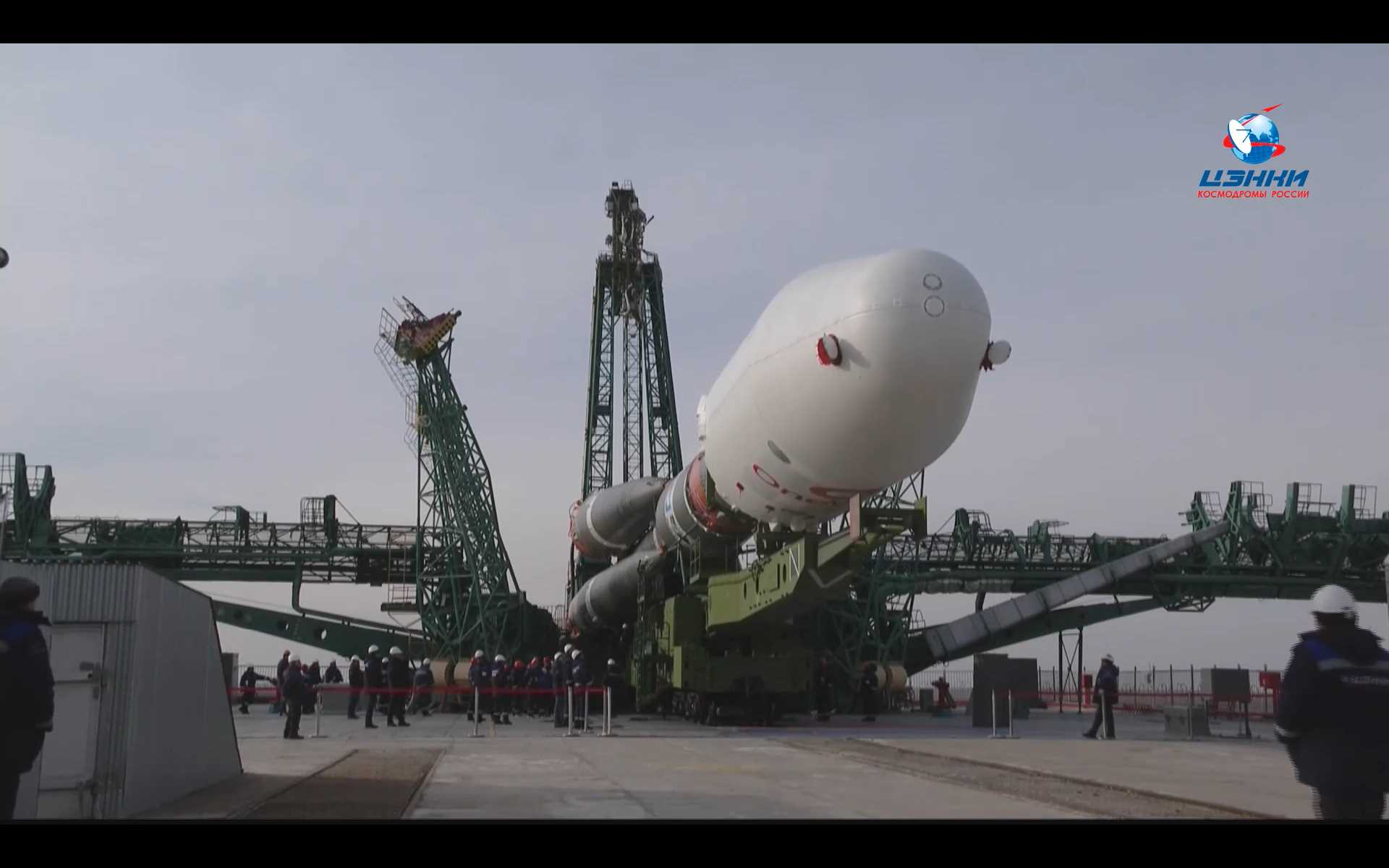The outcome was expected, but the visuals are still dramatic.
On Friday (March 4), Russia removed a Soyuz rocket topped with 36 OneWeb internet satellites from its launch pad at Baikonur Cosmodrome in Kazakhstan, which is managed jointly by the Russian Aerospace Forces and Roscosmos, Russia’s federal space agency.
The Soyuz was originally supposed to lift off on Friday, but its mission became a casualty of Russia’s ongoing invasion of Ukraine. Roscosmos demanded, as conditions of launch, that OneWeb guarantee the satellites would not be used for military purposes and that the United Kingdom government divest itself from the London-based company. (The U.K. government helped buy OneWeb out of bankruptcy in 2020).
Related: Russia’s invasion of Ukraine in satellite photos
Those demands were not met. On Wednesday (March 2), OneWeb ordered its employees to leave Baikonur and announced that it was suspending launches of its satellites from the site.
OneWeb is building a broadband constellation that will initially consist of 648 satellites. More than 420 of them have reached orbit to date, all on Russian-built Soyuz rockets operated by France-based company Arianespace. OneWeb missions have launched from Baikonur, Vostochny Cosmodrome in Russia’s Far East and Europe’s Spaceport in Kourou, French Guiana.
Roscosmos had already halted cooperation at Kourou, ending Soyuz launches from the site for the time being and flying its employees back to Russia. The agency also recently announced that it will stop selling Russian-made rocket engines to United States companies.

As such moves indicate, the decades-long space cooperation between Russia and the West has frayed considerably in the eight days since the invasion of Ukraine began. It’s unclear what the future holds, over both the short and long haul.
The Soyuz and the 36 OneWeb satellites that it was supposed to launch, meanwhile, are apparently now back in an assembly and testing facility at Baikonur, hauled there by a transporter emblazoned with markings used by Russian troops in Ukraine. Arianespace, which has suspended Soyuz launches for the foreseeable future, said it aims to keep a close eye on this ground-bound hardware.
“Arianespace will work with its partners to ensure the well-being of the goods and means currently in Baikonur,” company representatives said in a statement on Friday (March 4).
“Arianespace is in close contact with its customers and French and European authorities to best assess all the consequences of this situation and develop alternative solutions,” they added.
Mike Wall is the author of “Out There” (Grand Central Publishing, 2018; illustrated by Karl Tate), a book about the search for alien life. Follow him on Twitter @michaeldwall. Follow us on Twitter @Spacedotcom or on Facebook.

